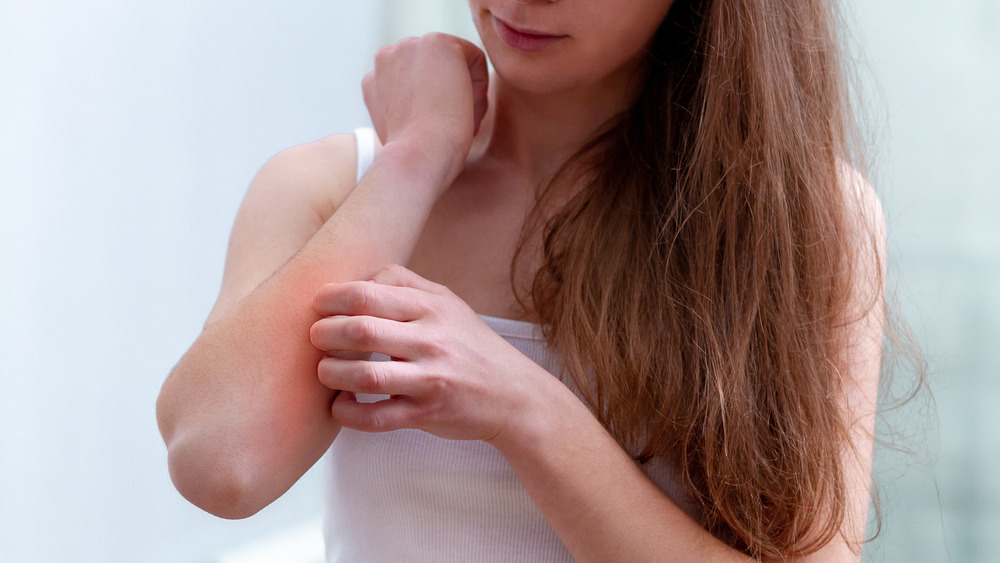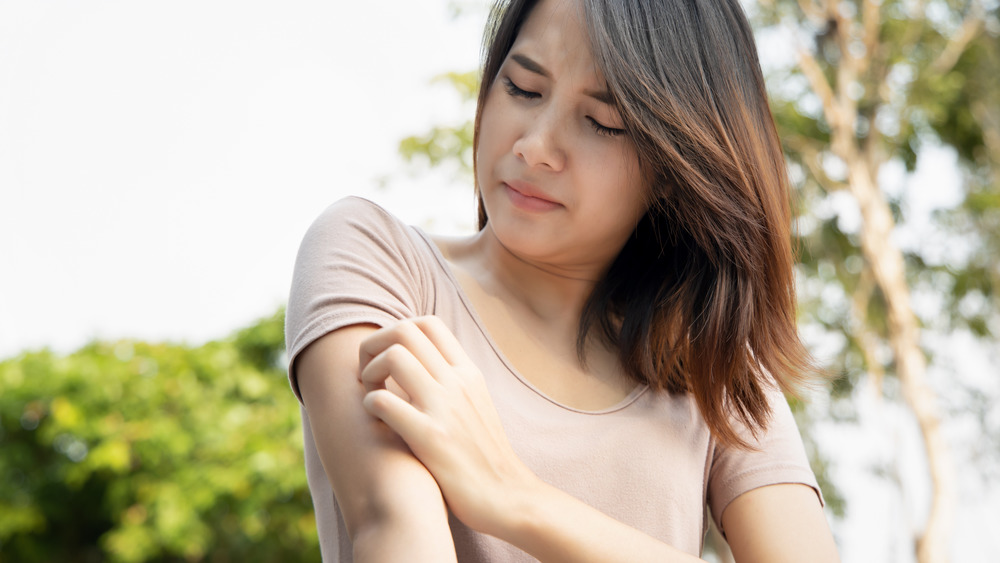Why Scratching A Mosquito Bite Is Riskier Than You Think
Most people have experienced the familiar, itchy sensation of a mosquito bite. According to the Centers for Disease Control and Prevention (CDC), when a mosquito bites you, it punctures your skin with its mouthpart to suck your blood for a meal. At the same time it's feeding, the insect injects saliva into your skin, which your body reacts to, causing an itchy bump to form. While some people only experience mild redness and itchiness, others have a stronger reaction and swelling and soreness may occur.
Generally, the itchiness caused by your body's reaction to the bite will go away within a few hours to a few days (via Healthline). The length of symptoms will vary depending on how big the bite is and the individual's immune system. Though it may be tempting to scratch the bite, don't, as this may increase the amount of time it still itches. That's because scratching can cause the skin to become even more inflamed, which can cause it to itch, creating a cycle.
Furthermore, if scratching opens your skin and causes it to bleed, it leaves you open to infection, such as cellulitis (via Cleveland Clinic). Signs of cellulitis include spreading redness around the mosquito bite, pus, swelling of the lymph nodes, chills, and fever. If you or your child experience these symptoms with a mosquito bite, see your doctor as it will need to be treated with antibiotics.
How to ease the itching instead
When you first notice a mosquito bite, it's important to wash the area with soap and water. Applying an ice pack for 10 minutes will help reduce swelling and itchiness. You can reapply the ice pack for relief as needed. You can also try applying rubbing alcohol to the affected area, though be careful not to use too much as it can irritate the skin.
The CDC recommends a home remedy of baking soda and water to reduce swelling and itching. Take one tablespoon of baking soda and gradually add water until a paste is formed. Place the paste on the bite for 10 minutes and then wash it off. An over-the-counter antihistamine cream or oral pill can also help relieve symptoms. Other home remedies you may want to try to ease itchiness and prevent scratching include taking an oatmeal bath, applying honey to the bite, placing a cold tea bag over the bite, and using a basil rub on your skin. These common household items have certain properties that may promote healing and soothe the skin.


